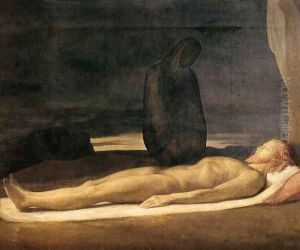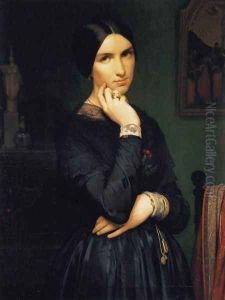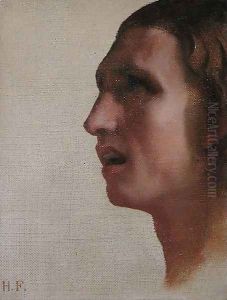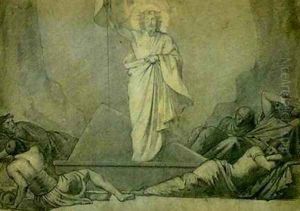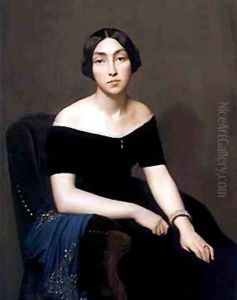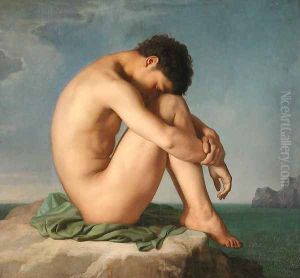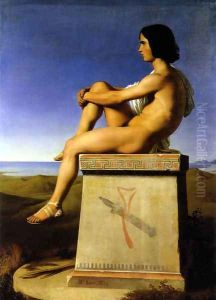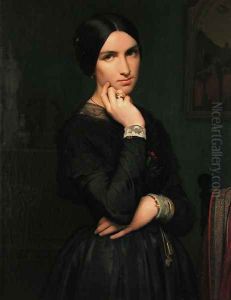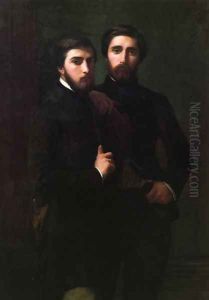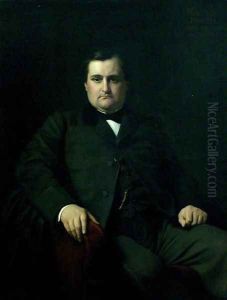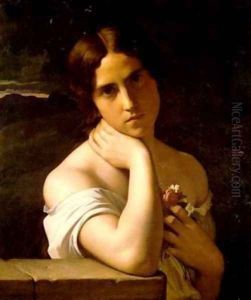Jean Hippolyte Flandrin Paintings
Jean Hippolyte Flandrin, born on March 23, 1809, in Lyon, France, was a distinguished 19th-century French painter known for his Neo-classical style, which was heavily influenced by his mentor, Jean-Auguste-Dominique Ingres. Coming from a modest background, Flandrin's early life was marked by financial difficulty, which initially led him to pursue a career in business. However, his passion for art prevailed, and he moved to Paris to study under Ingres at the École des Beaux-Arts. His dedication and talent soon earned him the prestigious Prix de Rome in 1832, which allowed him to study in Rome for five years.
While in Rome, Flandrin was deeply influenced by the works of the Renaissance masters and the classical antiquity, which shaped his artistic style. His paintings are characterized by their serene and idealized portrayal of the human figure, often set against the backdrop of harmonious landscapes or classical architecture. Flandrin's religious paintings, such as 'Jesus Christ in the Wilderness' (1854), are particularly noted for their spiritual depth and the calm dignity he imparts to his figures.
After his return to France, Flandrin enjoyed considerable success. He was commissioned to undertake several important decorative works for churches in Paris and elsewhere, including the Church of Saint-Germain-des-Prés and the Church of Saint Vincent de Paul. His frescoes and murals are celebrated for their elegance and refinement, reflecting his mastery of the Neo-classical style.
Flandrin was also a respected portraitist, capturing the likenesses of many notable figures of his time. His portraits exhibit a remarkable sensitivity to the character and personality of his subjects, rendered with a clarity and simplicity that align with his Neo-classical ideals.
Throughout his career, Flandrin remained devoted to the principles of beauty and harmony that he believed were fundamental to art. His works, while not as widely recognized today as those of some of his contemporaries, continue to be admired for their grace and tranquility. Jean Hippolyte Flandrin passed away on March 21, 1864, in Rome, leaving behind a legacy that has contributed significantly to the history of French painting.

